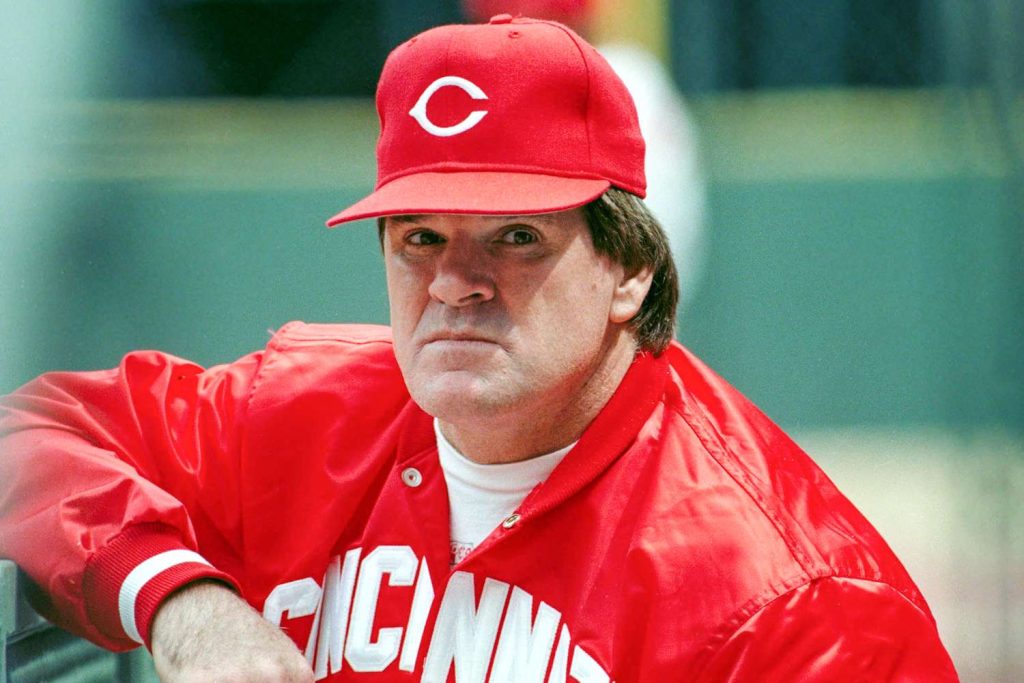Pete Rose, Major League Baseball’s all-time hit king, has died at 83
3 min read

Pete Rose, the legendary figure in Major League Baseball (MLB) and the all-time hit king, has passed away at the age of 83, as confirmed by a spokesperson from the Clark County Office of the Coroner/Medical Examiner in Nevada. Renowned for his tenacity on the field, Rose was a Cincinnati Reds icon whose remarkable career was overshadowed by his gambling controversies, preventing him from entering the National Baseball Hall of Fame.
Rose, known as “Charlie Hustle,” accumulated an astonishing 4,256 hits over a 24-season career, embodying a relentless pursuit of victory. He was celebrated for his all-out effort, sliding head-first into bases and sprinting even after a walk, showcasing a dedication that both captivated and frustrated opponents.
Throughout his career, Rose played on three World Series championship teams, including the famed “Big Red Machine” of the Reds in 1975 and 1976 and the Philadelphia Phillies in 1980. He was a 17-time All-Star and won the National League Rookie of the Year award in 1963 and the Most Valuable Player award in 1973.
However, his legacy was marred by revelations of gambling on baseball, particularly on games involving the Reds, the team he both played for and managed. In 1989, after MLB received reports of his betting activities, they appointed attorney John Dowd to investigate. Dowd’s findings confirmed that Rose had indeed wagered on Reds games during his time as both a player and manager. Consequently, MLB Commissioner A. Bartlett Giamatti banned Rose from baseball for life, allowing him the possibility of reinstatement after one year if he demonstrated a rehabilitated life.
Despite the ban, Rose initially denied any wrongdoing, claiming he believed his suspension would be temporary. It wasn’t until 2004 that he publicly acknowledged betting on baseball in his autobiography, “My Prison Without Bars,” though he maintained he never bet against his own team. He reflected on his compulsive gambling as an attempt to relive the thrill of competition.
The Hall of Fame’s stance on ineligible players solidified in 1991, making it impossible for Rose to appear on any ballot. In 2007, he admitted to betting on the Reds “every night” during his managerial tenure, but his credibility remained in question. MLB Commissioner Rob Manfred later rejected Rose’s request for reinstatement, citing a lack of mature understanding regarding his actions.
In his later years, Rose came to terms with the reality of his situation, expressing remorse in his 2019 autobiography, “Play Hungry.” He recognized that if he ever made it into the Hall of Fame, it would be posthumously, stating, “I’m not a man who goes around saying sorry, but on this one, I’m truly sorry.”
Born in 1941 in Cincinnati, Pete Rose was raised in a sports-centric household, idolizing his father, Harry. His commitment to baseball was driven by a desire to make his dad proud. Rose credited his success to hard work rather than innate talent, detailing how he honed his skills through practice and studying opposing pitchers.
After signing with the Reds in 1960, Rose quickly made an impact, leading the league in hits and batting average in his rookie season. Over his illustrious career, he achieved a batting average above .300 for 16 seasons and set records for the most hits, games played (3,562), and at-bats (14,053). His versatility allowed him to play five positions, earning two Gold Glove awards.
Rose’s competitive nature was evident in every aspect of his game, including his controversial play during the 1970 All-Star Game, where he collided with catcher Ray Fosse, resulting in a serious injury for Fosse. Rose remained unapologetic, emphasizing that both players did their jobs.
After retiring, Rose faced the fallout from his gambling scandal, living in Las Vegas and often signing autographs. While he was denied entry into Cooperstown, the Cincinnati Reds honored him with a spot in their Hall of Fame in 2016. The organization later erected a statue of him sliding head-first, symbolizing his dedication and spirit.
Though divorced from his first wife and separated from his second, Rose is survived by a longtime fiancée and children, including Pete Rose Jr., who briefly played for the Reds in 1997. As baseball remembers Pete Rose, his legacy remains a complex blend of brilliance and controversy, forever leaving an indelible mark on the game.